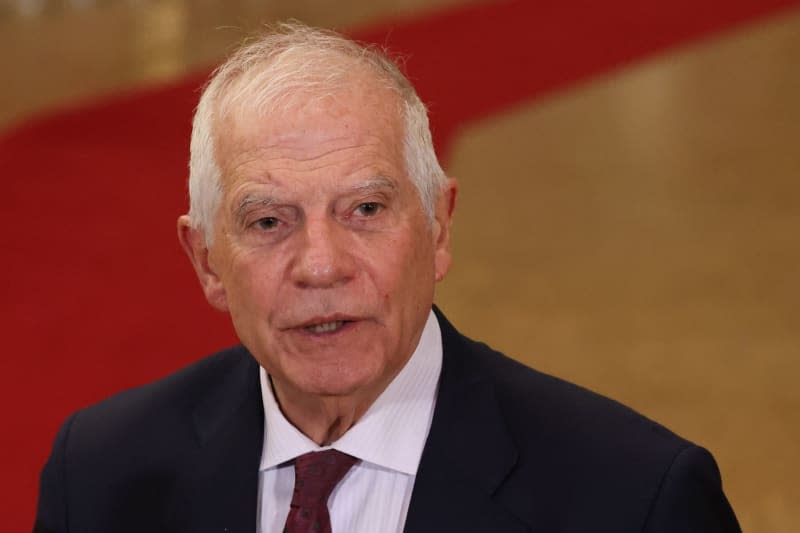EU plans new sanctions on Iran following attacks on Israel

- Oops!Something went wrong.Please try again later.
The European Union is planning new sanctions on Iran following Tehran's recent missile and drone attacks on Israel, EU foreign policy chief Josep Borrell said on Tuesday in Brussels.
"The region is at the edge of an abyss," Borrell warned, describing the tense situation in the Middle East. "We have to move away from it," he added.
EU foreign ministers discussed the Iranian attack in a videocall, specially convened after Iran directly attacked Israel on Saturday, for the first time in the history of the Islamic Republic.
Iran said it was retaliation for the killing of high-ranking Iranian officers in Syria at the start of the month.
New punitive measures could be imposed through a sanctions regime set up after Iran began supporting the Russian war on Ukraine by supplying Moscow with drones, Borrell said.
The measures banned the export of components used for the construction and production of unmanned aerial vehicles to Iran. The bloc's top diplomat said those sanctions could be expanded to make it harder for Iran to produce missiles.
Borrell said there are also plans to target the supply of drones and missiles to Iranian proxies in the Middle East. Borrell said he has instructed EU officials to begin the "necessary work."
Some EU member states have called to sanction the Islamic Revolutionary Guard Corps (IRGC) but Borrell said that the elite unit of the Iranian armed forces would first have to be prosecuted by a national authority for terrorist activities under EU law. However, this has not yet been the case.
The video conference also discussed how the EU can contribute to de-escalation in the region. EU foreign ministers called "on all actors" to show restraint in the region, Borrell said.
Condemning the Iranian attack, Borrell said that EU foreign ministers "the commitment of the European Union to Israel's security."
EU foreign ministers also highlighted their previous calls for an immediate ceasefire in the Gaza Strip, Borrell said, while calling for the release of all hostages taken by Hamas after the October 7 attacks and for humanitarian access to the civilian population be unhindered
While the fighting in Gaza continues "there will be no regional stability," Borrell said, stressing that the conflict must be taken into consideration when attempting to keep peace in the Middle East.

